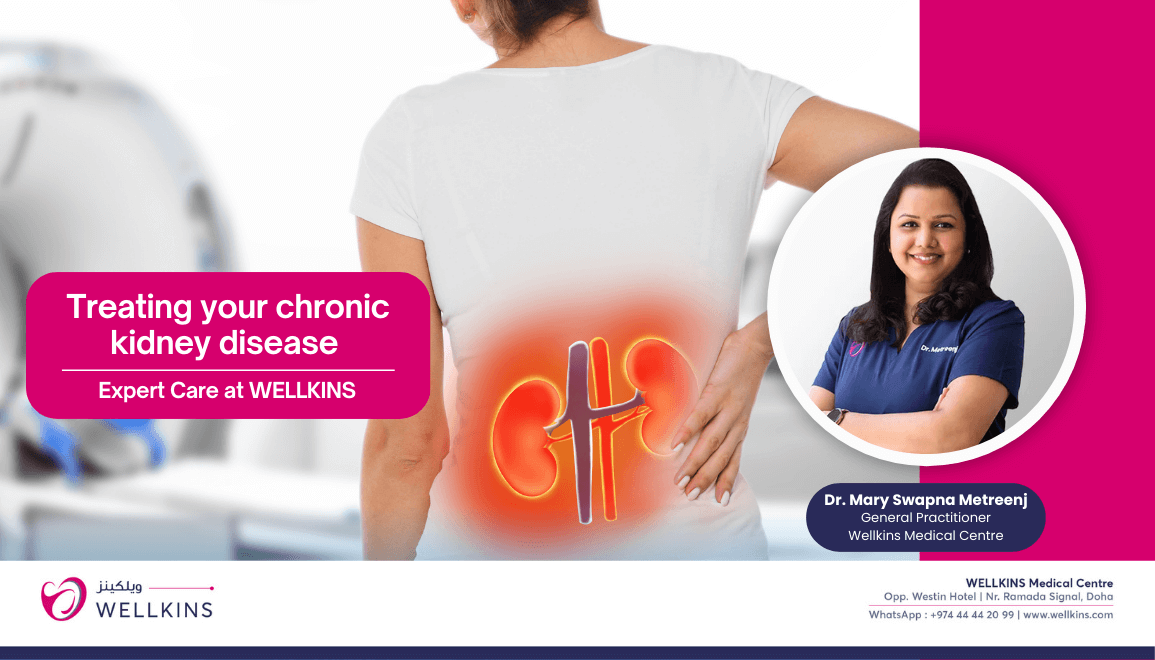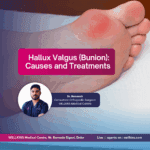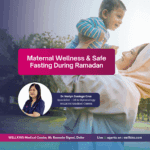Author: Dr. Mary Swapna Metreenj, General Practitioner Wellkins Medical Centre
Chronic Kidney Disease (CKD) is a serious and progressive condition that affects millions of people worldwide, often without a person’s knowledge in its early stages. It is frequently referred to as a “silent disease” because symptoms typically do not become apparent until the kidneys are significantly damaged and their function has fallen below 25%. This makes it crucial for individuals, especially those with pre-existing health conditions, to be vigilant and aware of the signs and symptoms. Early detection and proactive management, which can include simple lifestyle modifications and medication, are key to slowing the progression of the disease, preventing complications and maintaining a high quality of life. Understanding what your kidneys do and what can go wrong is the first step toward safeguarding your health.
Every individual knows that a chronic illness can turn your world upside down. The thought of declining health, the need for lifestyle changes, and the fear of long-term complications are instantly concerning. With an increasing prevalence of risk factors like diabetes and hypertension in Qatar, it’s crucial to understand the silent progression of chronic kidney disease.
Understanding the Role of Your Kidneys
Your kidneys are a pair of vital organs, each about the size of a fist, located on either side of your spine just below the rib cage. These remarkable organs are more than just filters; they are a complex system responsible for maintaining the body’s internal balance. Their vital functions include:
Filtering Waste and Toxins: The kidneys’ primary role is to filter approximately 180 liters of blood per day, removing waste products, excess water, and toxins. These substances are then concentrated into urine and excreted from the body.
Regulating Blood Pressure: Kidneys produce several hormones, including renin, which is crucial for regulating blood pressure. When kidney function is compromised, this delicate balance is disrupted, often leading to a rise in blood pressure.
Producing Red Blood Cells: A healthy kidney produces the hormone erythropoietin (EPO), which signals the bone marrow to produce red blood cells. A decline in kidney function can lead to a drop in EPO production, resulting in anemia.
Maintaining Fluid and Electrolyte Balance: Kidneys play a critical role in balancing the levels of vital electrolytes like sodium, potassium, calcium and phosphorus. An imbalance can lead to serious health issues, including muscle cramps and heart rhythm abnormalities.
Activating Vitamin D: The kidneys convert vitamin D from supplements or sunlight into its active form, calcitriol, which is essential for bone health and the regulation of calcium in the body.
When the kidneys are damaged, they are unable to perform these functions effectively, leading to a dangerous buildup of waste in the blood and a host of other systemic health problems.
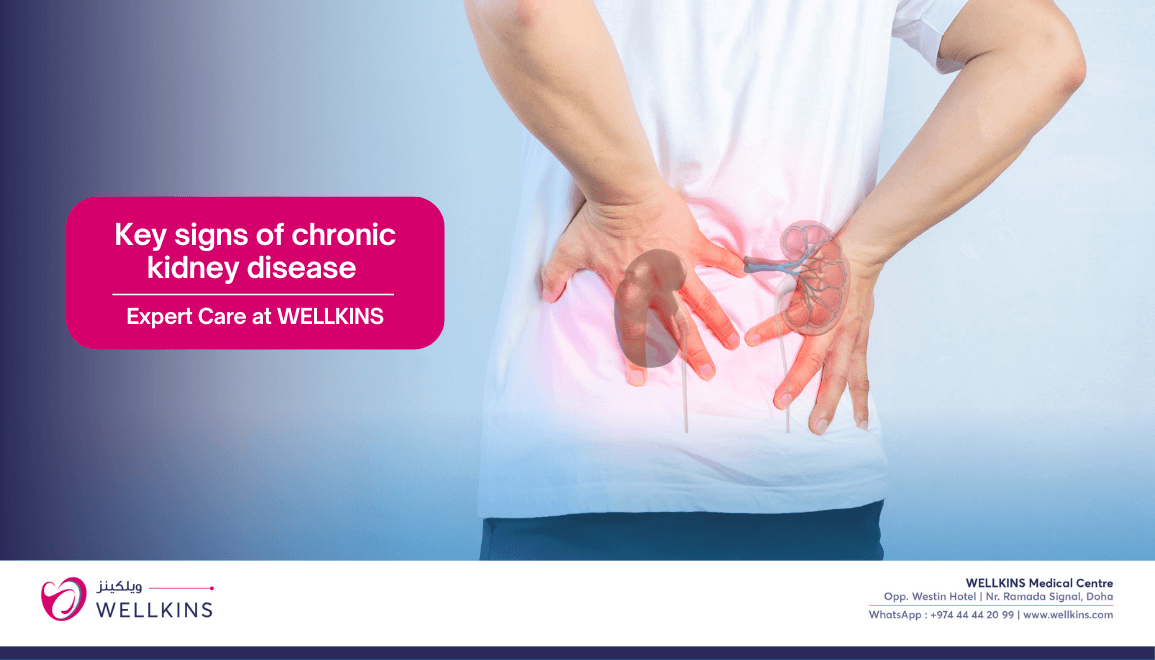
Key Signs of Chronic Kidney Disease
The symptoms of CKD are often subtle and non-specific in the early stages, which is why they are so easily mistaken for other, less serious conditions. This is precisely why it is so important to listen to your body and seek medical advice if you experience any of these signs, particularly if you have known risk factors.
Changes in Urination: This is one of the most common early indicators. You may notice a significant change in the frequency of urination, either more or less often, especially waking up multiple times during the night to urinate (nocturia). Other changes include foamy or bubbly urine, which may indicate a high protein content, or the presence of blood in the urine, which requires immediate medical attention.
Fatigue and Weakness: As kidney function declines, waste products build up in the blood. This condition, known as uremia, can lead to a general feeling of extreme tiredness, a lack of energy, and an overall sense of malaise that can be so debilitating that it interferes with your daily routine and work performance.
Swelling (Edema): Damaged kidneys lose their ability to remove excess fluid and sodium from the body. This fluid then accumulates in tissues, causing noticeable swelling in the hands, feet, ankles, and face. It can also lead to a sudden and unexplained increase in body weight.
Nausea and Vomiting: The buildup of toxins in the blood can cause a loss of appetite, nausea, and vomiting. These symptoms may become more frequent as the disease progresses and can be one of the first signs that a person with risk factors should be screened for CKD.
Shortness of Breath: Fluid accumulation from a decline in kidney function can also build up in the lungs, making breathing difficult and causing a feeling of shortness of breath, which may be mistaken for asthma or a heart condition. Anemia, a common complication of CKD, can also contribute to shortness of breath due to a lack of oxygen-carrying red blood cells.
Persistent Itching: A severe and persistent itching sensation is often a sign of advanced kidney disease. The buildup of waste products, such as urea, in the blood can crystallize on the skin, causing intense itching and skin rashes that are not relieved by traditional lotions or moisturizers.
Muscle Cramps: Imbalances in electrolytes like calcium, potassium, and phosphorus, which are regulated by the kidneys, can lead to painful muscle cramps, especially in the legs and feet. This can be particularly noticeable at night.
Difficulty Concentrating: As toxins build up in the bloodstream, they can cross the blood-brain barrier and affect cognitive function. This can lead to difficulty concentrating, memory problems, a feeling of “brain fog,” and general confusion.
Who is at Risk?
While CKD can affect anyone, certain factors significantly increase your risk. Understanding these risk factors is crucial for early detection and prevention.
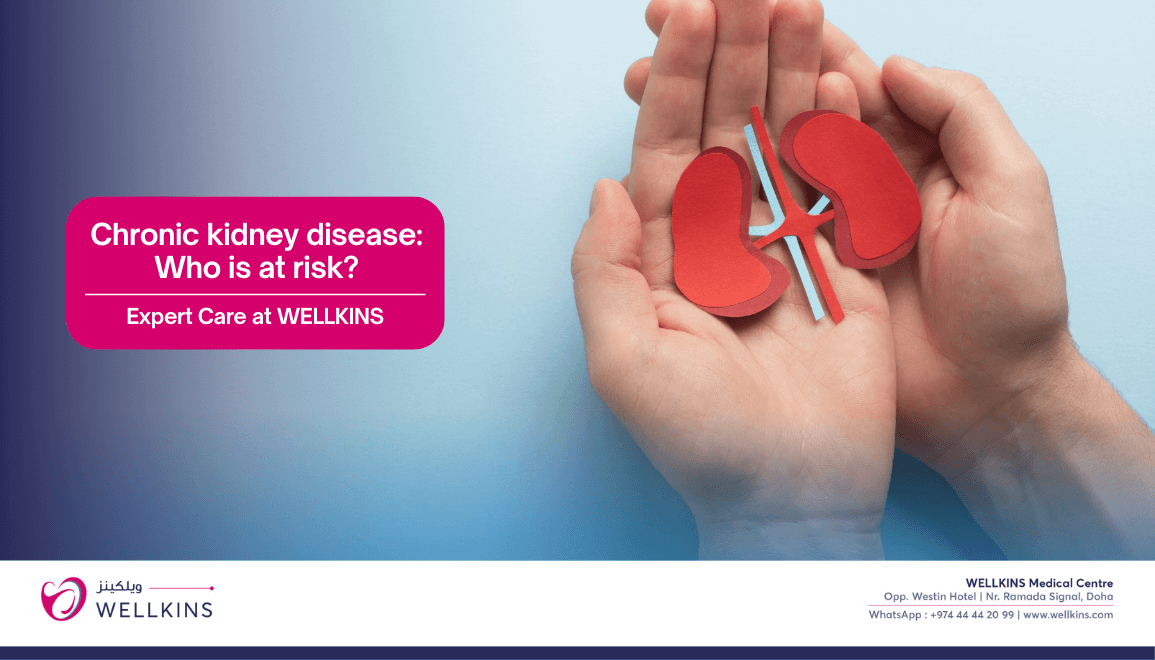
Diabetes: High blood sugar levels can damage the tiny blood vessels in the kidneys (nephrons). Diabetes is the leading cause of CKD, and managing blood glucose levels is the most important step in protecting your kidneys.
High Blood Pressure (Hypertension): Uncontrolled high blood pressure is the second leading cause of CKD. It can damage the blood vessels in the kidneys, impairing their ability to filter blood effectively and leading to further increases in blood pressure, creating a vicious cycle.
Family History: If you have a family member with a history of kidney disease or kidney failure, you are at a significantly higher risk. Genetic predisposition plays a major role, and regular screening is highly recommended.
Age: The risk of developing kidney disease increases with age, as kidney function naturally declines after the age of 40.
Obesity: Studies have shown a strong link between obesity and the development of CKD. Obesity can lead to complications like diabetes and high blood pressure, both of which are major risk factors for kidney disease.
Smoking: Smoking can damage blood vessels throughout the body, reducing blood flow to the kidneys and worsening their function. It also increases the risk of high blood pressure and other conditions that can lead to kidney disease.
Cardiovascular Disease: People with heart disease are at a higher risk of developing CKD, as the conditions are closely linked. The same factors that damage the heart can also damage the kidneys.
The Importance of Early Diagnosis
Early detection is the single most critical factor in managing CKD and preventing its progression to kidney failure. Since symptoms often don’t appear until the disease is in its advanced stages, regular screening is essential for individuals with risk factors. Two simple, non-invasive tests can help your doctor assess your kidney health:
Estimated Glomerular Filtration Rate (eGFR): This is a blood test that measures the level of creatinine, a waste product, in your blood. The eGFR is a calculation that shows how well your kidneys are filtering your blood.
Urine Albumin-to-Creatinine Ratio (ACR): This urine test measures the amount of albumin, a type of protein, in your urine. The presence of albumin can be an early sign of kidney damage, as healthy kidneys do not allow significant amounts of protein to pass into the urine.
If you have diabetes, high blood pressure, heart disease, or a family history of kidney failure, these tests should be part of your routine medical check-up.
Lifestyle and Dietary Management
Managing CKD is a team effort involving you and your healthcare provider. A key component of this management is adhering to a kidney-friendly lifestyle and making specific dietary changes, which can help significantly slow the disease’s progression.
Dietary Adjustments: A kidney-friendly diet often involves a carefully monitored intake of sodium, potassium, and phosphorus. High levels of these minerals can be harmful to a person with CKD. It is also essential to manage protein intake to reduce the workload on your kidneys. A nutritionist or dietitian can help you create a personalized meal plan that is both healthy and enjoyable.
Fluid Intake: Your doctor will advise you on the appropriate amount of fluid to consume daily. This is crucial for preventing fluid buildup and swelling, especially as your kidney function declines.
Regular Exercise: Staying physically active can help manage blood pressure and overall health, which in turn supports kidney function. Activities like walking, swimming, and cycling can be particularly beneficial.
Medication Adherence: Taking prescribed medications for blood pressure and diabetes exactly as directed is vital for protecting your kidneys from further damage. It is also important to avoid over-the-counter pain relievers like NSAIDs (Nonsteroidal Anti-inflammatory Drugs), which can be harmful to the kidneys.
Quit Smoking: If you are a smoker, quitting is the most important step you can take to protect your kidneys and overall health.
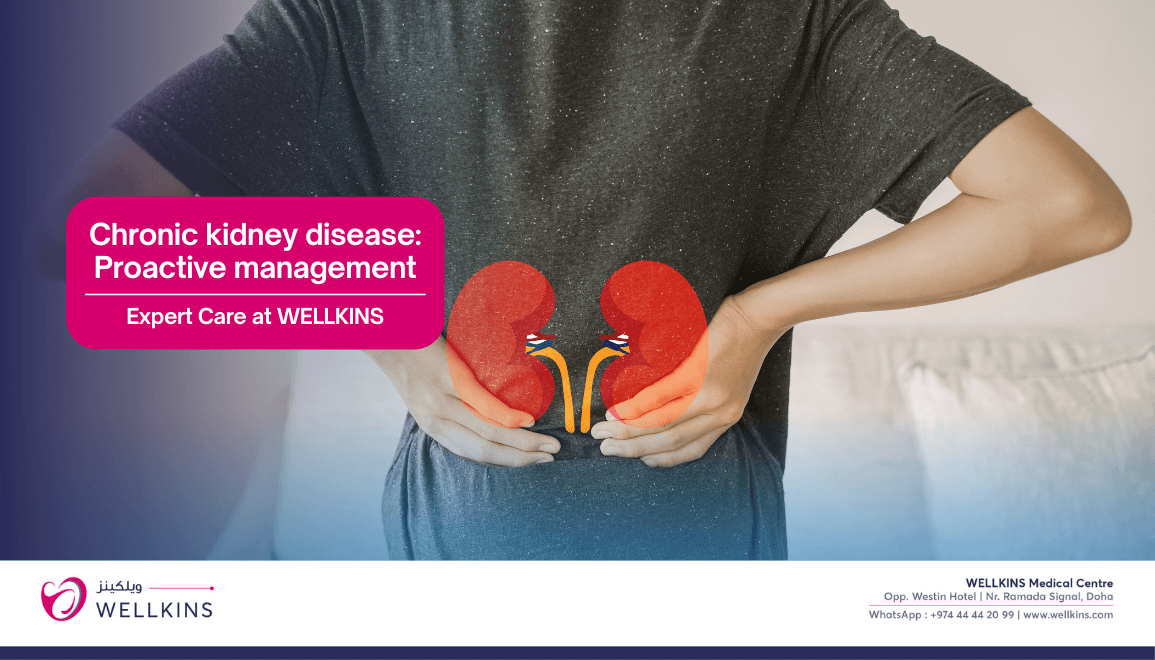
Managing with chronic kidney disease can be a challenging journey, but it is not one you have to take alone. The best defense is to be proactive about your health and seek professional guidance at the first sign of concern.
At Wellkins Medical Centre, we are committed to providing comprehensive and compassionate care for our patients. By understanding the complexities of CKD and is equipped to provide a swift and accurate diagnosis. We will work with you to create a personalized management plan that may include a combination of lifestyle and dietary changes, medication and regular monitoring to slow the progression of the disease. Our aim is to support you with the knowledge and care you need to maintain your quality of life and live a healthier, fuller life.
To book an appointment at Wellkins Medical Centre: https://wellkins.com/visit


